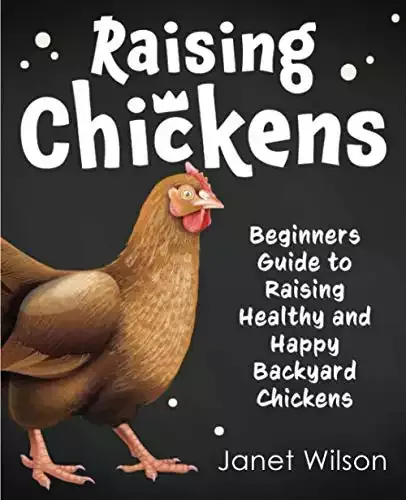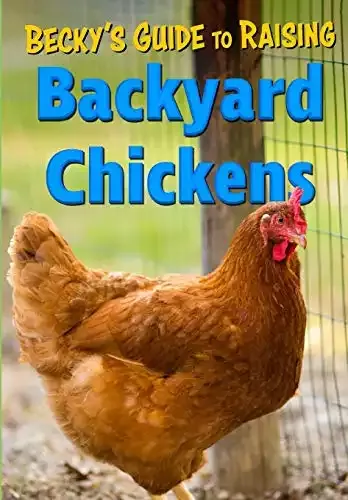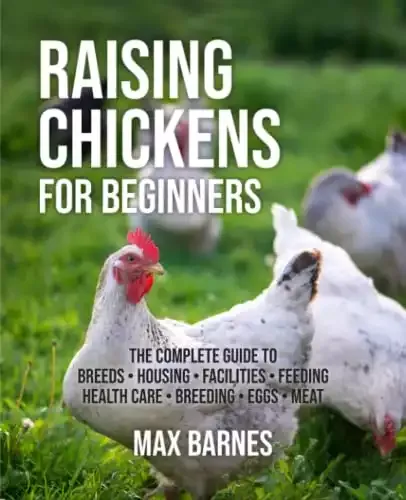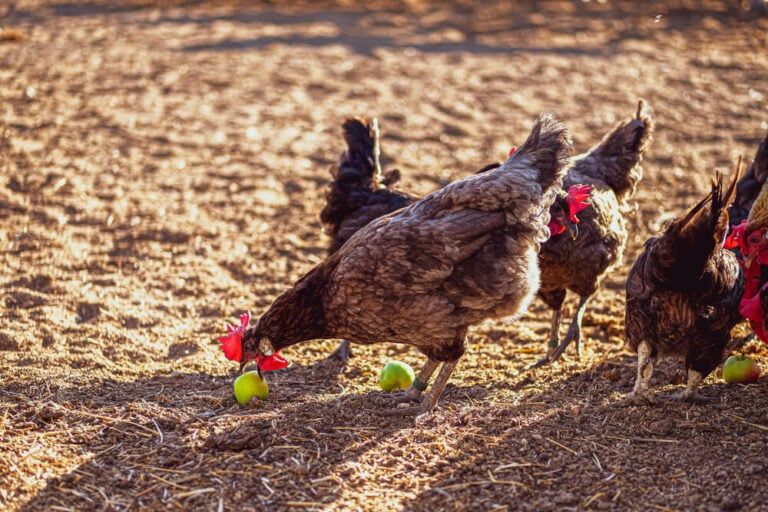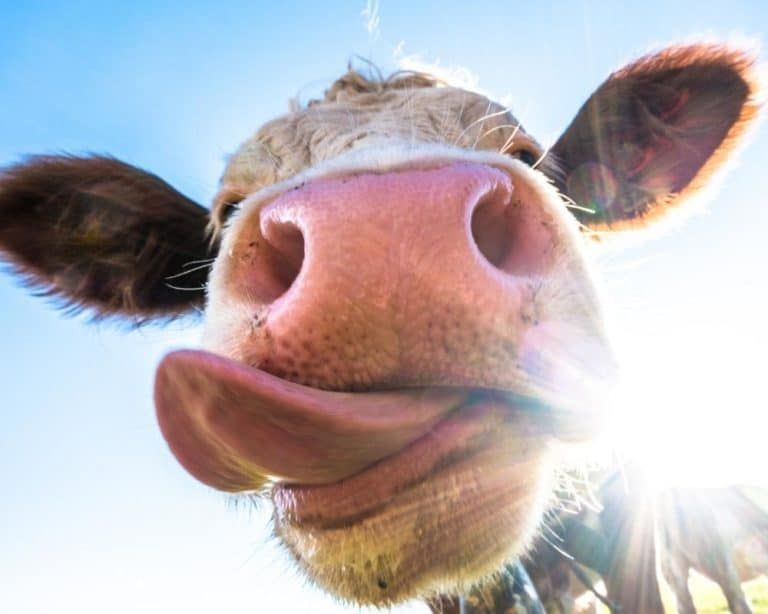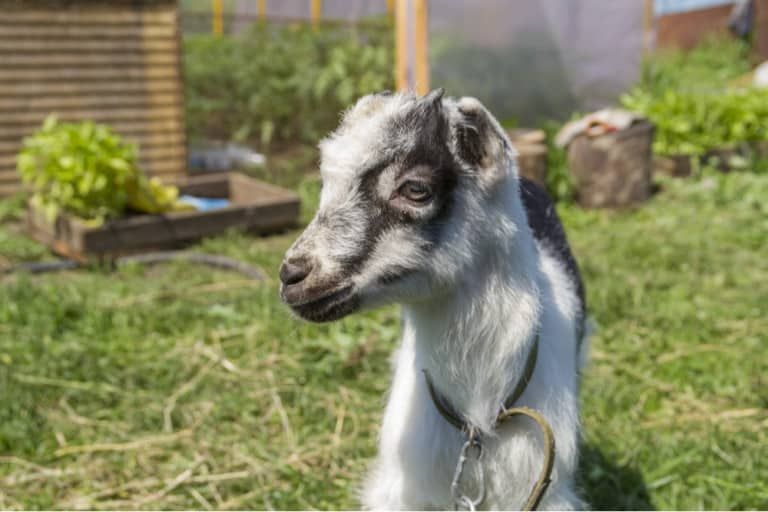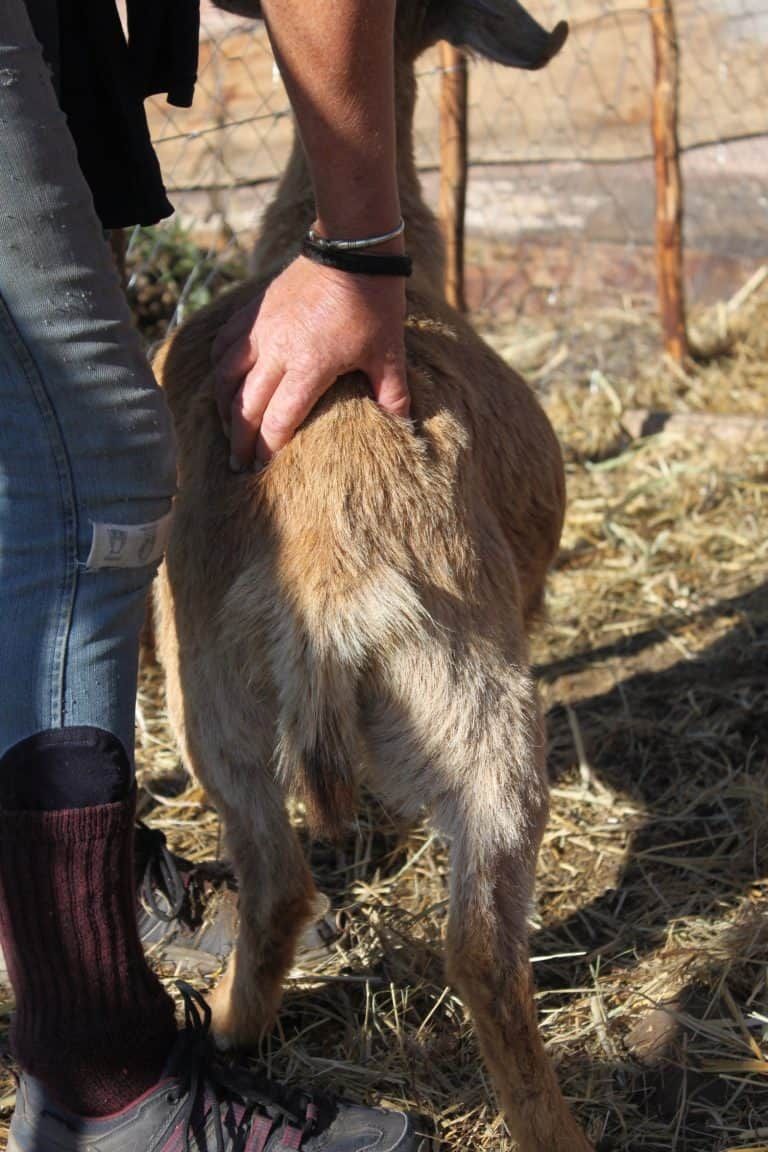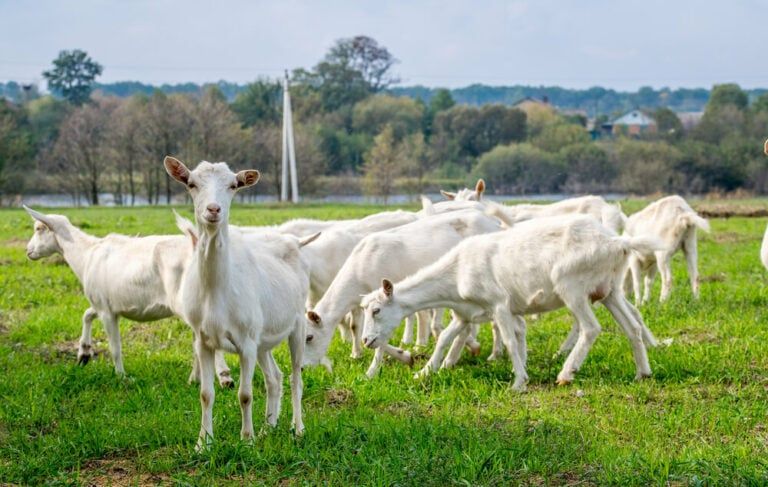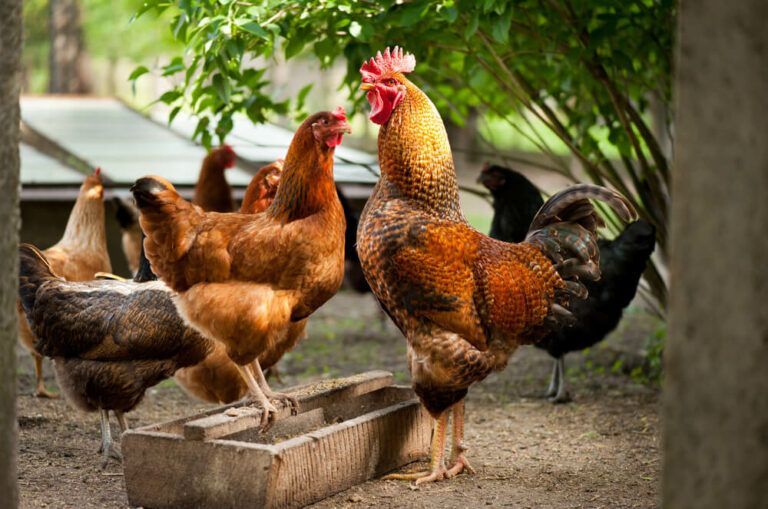Do Raccoons Eat Chickens or Kill Them? [+ Coop Protection Tips!]
Welcome! This article contains affiliate links, meaning I get a commission if you decide to make a purchase through my links, at no extra cost to you.
Do raccoons eat chickens? If you raise chickens in the backyard, you probably like hearing the comforting sound of distant clucking, flapping, and cheeping. Your chickens might even cheerfully wander toward you, particularly if free-ranging. Then, later that evening, to your horror, you hear nothing when you walk into your chicken coop. What happened? Where are your beloved birds?!
There is a chance that raccoons may have gotten in! Often derisively referred to as trash pandas, raccoons get reviled by chicken ranchers for several reasons! But do raccoons truly kill chickens? Or do they eat them?
Considering how adorable raccoons appear, the answer might shock you!
What’s Inside:
Do Raccoons Eat Chickens? Or Kill Them?
Yes, raccoons are potential poultry predators who kill chickens and eat them without a second thought. They can wipe out entire flocks overnight. In particular, if you have young chickens that struggle to get out of the way, they immediately become easy targets for these murderous wild animals!
Even though you love your chickens, raccoons love them for different reasons. Raccoons want an easy midnight snack! Therefore, you need to understand how to tell if raccoons are near your chicken coop and how you can get rid of them.
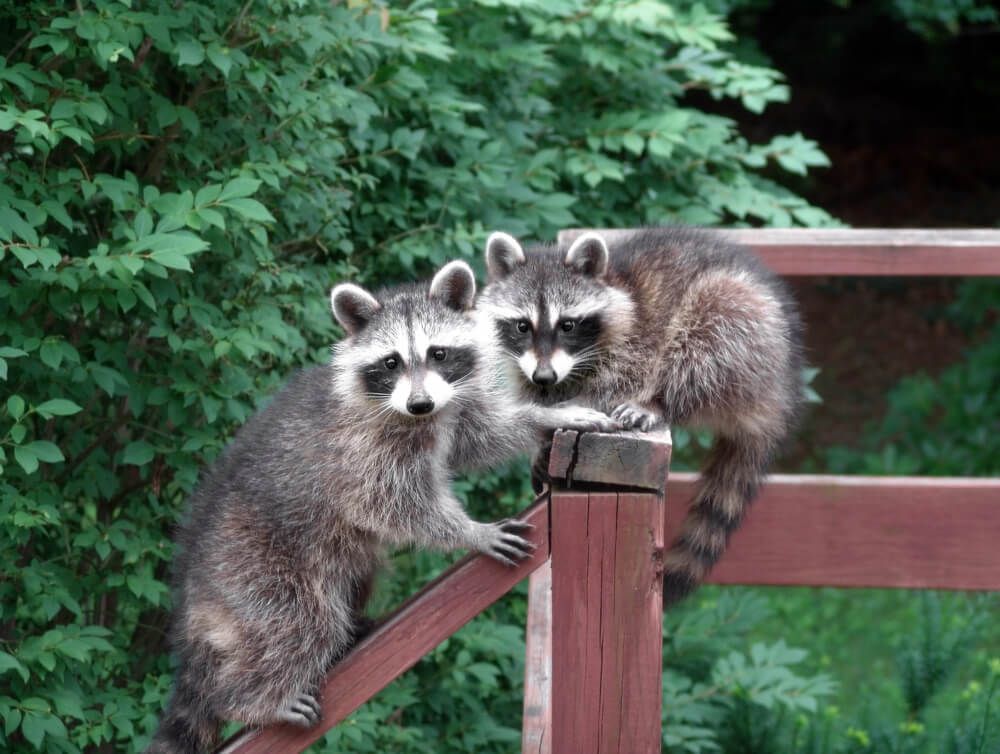
How to Tell If Raccoons Are Near Your Chicken Coop
Several signs could indicate that raccoons are near your chicken coop. First, understand that raccoons tend to eat a ton during fall, allowing them to store up body fat and survive winter.
They tend to search for food sources and territory they can claim, which is why raccoons may show up near your chicken coop if they see signs of an easy food source.
Here are some tell-tale signs that your coop got marked as a raccoon dining destination.
1. You Hear Raccoon Sounds
Listening to raccoon calls is one of the easiest ways to tell if they are near your chicken coop. Raccoons are vocal predators, and they have several sounds they will make. For example, you may notice a high-pitched chattering noise. Or, you might hear an angry raccoon, which is more like a growl.
2. You See Raccoon Tracks
Next, you should keep your eyes open for raccoon tracks. They should be easy to spot when compared to other predators. Raccoons walk on the entire paw, so you should see handprints in the dirt. Look for five long digits with a claw near the end of the print.
The front and back tracks should look the same. Long raccoon fingers that lock and latch into place make them particularly deadly for your chickens, so watch for these tracks!
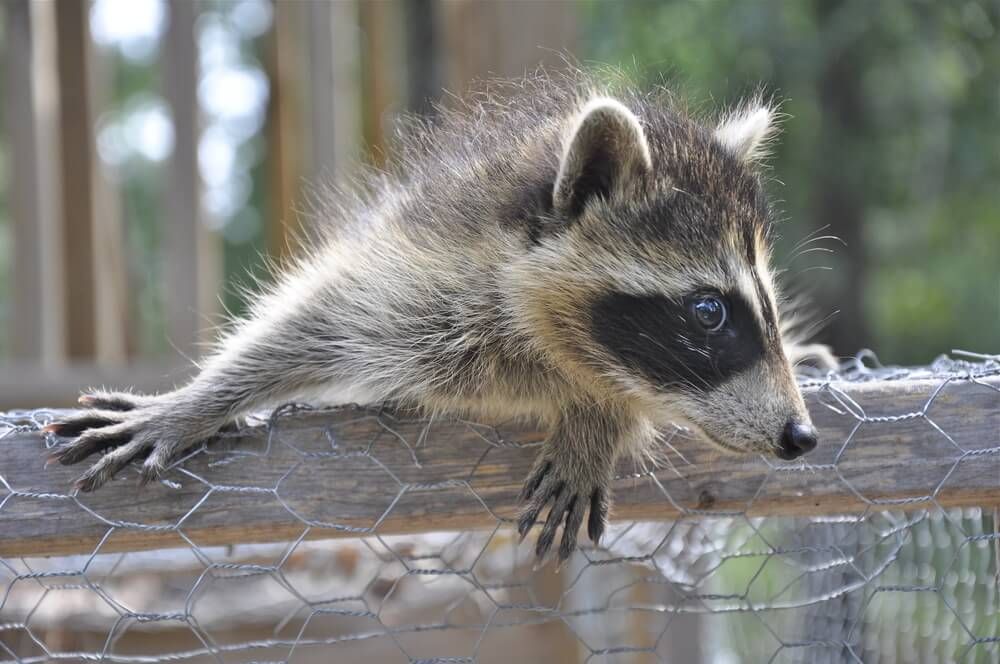
3. You Notice Raccoon Scat
Finally, keep your eyes (and nose) open for raccoon droppings too! While they might not smell as terrible as other animal scat, it certainly doesn’t smell good! Raccoon scat is usually between two and three inches long. It should look blunt at both ends. Furthermore, don’t leave raccoon scat around. It could contain roundworms, which could infect other animals, including chickens.
4. You Observe Raccoons Living Nearby
If you believe you have raccoons near your chicken coop, you need to know where to look for them. They will make their home, or den, in whatever place works best! You might find them in a rock crevice, or they could hide in a tree hole.
Look for raccoons hiding in tree branches during the day. They tend to come out to hunt at night. You may also find them under a deck, in an open car, or even in an open trash container.
Read More!
- What Can Chickens Eat? Ultimate List of 134 Foods Hens Can and Can’t Eat!
- How to Keep Chickens Warm In Winter Without Electricity
- Raising Pheasants vs. Chickens for Profit on Your Homestead
- 20 Chickens That Lay Colored Eggs! [Olive, Blue, and Pink Hen Eggs?!]
- How Long Can Chickens Go Without Water? [+ Flock Hydration Tips!]
Signs of a Raccoon Attack
How do you know if a raccoon has attacked your chicken coop? If you have ever gone camping, you know what it is like when raccoons infiltrate your campsite! You will probably see your garbage and belongings thrown all over the place! Your chicken coop might look the same way.
Some of the signs you may spot include the following.
1. You See Blood and Feathers
You may see blood and feathers all over the inside of your chicken coop, as well as dead chickens. It might look like your chickens have molted in the chicken coop, and you may see blood stains on the floor.
2 You See Chickens Limbs On Your Fence
If the raccoons cannot get inside the chicken coop, they may try to pull the chicken through the holes in the fence. You might see feathers stuck to the wall of the chicken coop. Or, you might see pieces of your chickens hooked in the chain link fence.
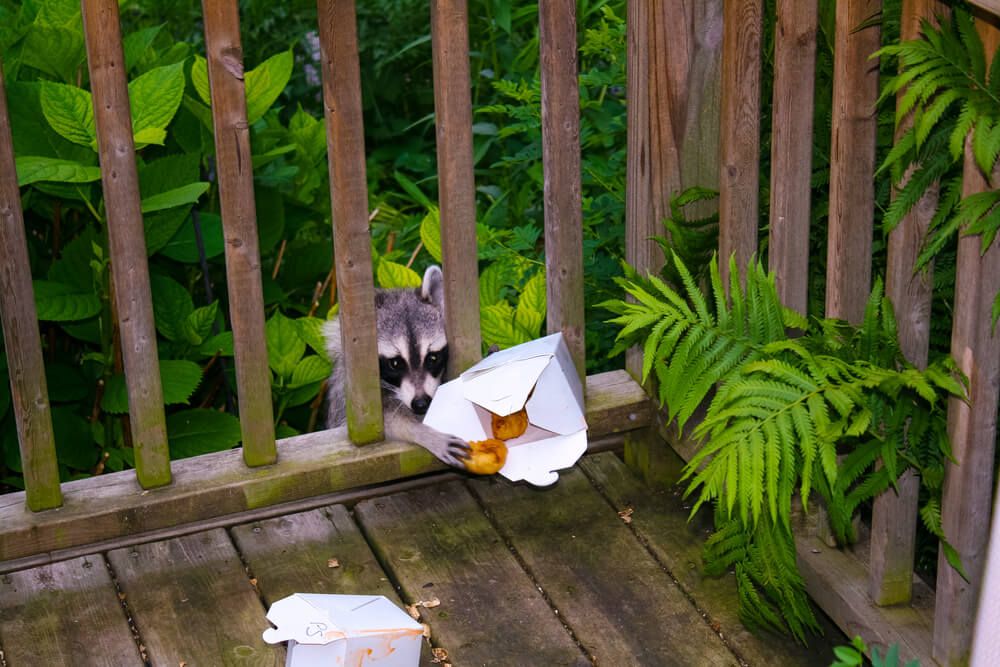
3. You See Hen Carcasses Neatly Piled and Partially-Eaten
We read that raccoons may neatly pile their chicken victims after partially devouring them. Raccoons may also eat the chicken head and breast – leaving the rest.
4. You See Claw Marks or Scratches
It is not unusual for raccoons to attack in packs, so you might also see some claw or scratch marks on multiple sides of the chicken coop. Claw marks could be your best sign that raccoons were trying to break in.
Raccoons, like other predators, tend to return once they realize they can get into your chicken coop. Therefore, you should ensure raccoons can’t access the henhouse in the future.
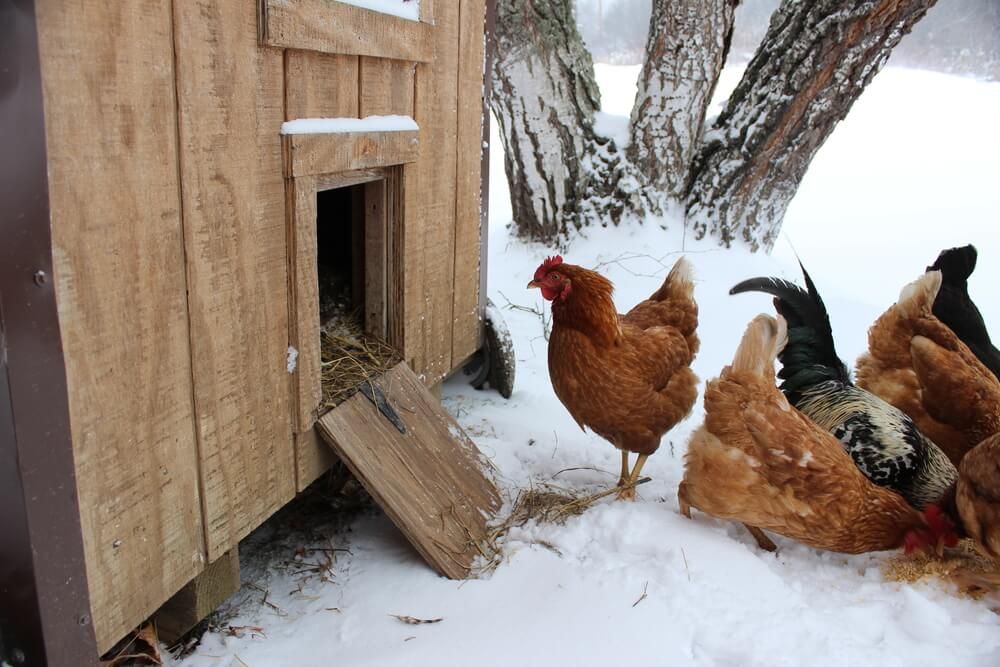
What Do Raccoons Eat?
Raccoons are omnivores. Raccoons, like other omnivores, eat just about anything they can get their hands on. Omnivores eat fruit, vegetables, seafood, chicken, and just about anything else that has nutritional value. If you leave your garbage cans open at night, you probably know that raccoons will eat right out of your garbage can!
Here are some foods that raccoons might eat.
Fruit and Nuts
Raccoons like to eat fruit and nuts. They love binging on these during the fall. That way, they have enough fat to survive during winter when food gets scarce.
Freshwater Animals
Raccoons, like other animals, need a source of fresh water. When they drink water from a nearby pond, lake, or stream, they may take the opportunity to kill some seafood as well. They like to eat crawfish, frogs, and even crabs.
Worms and Insects
If raccoons are close to land, they will eat worms, insects, and other rodents if they can find them. Raccoons are also known to eat eggs of just about all types. (We read from a trustworthy source that raccoons love eating worms during the spring and fall.)
Chickens, Poultry, and Eggs
Of course, raccoons will eat chickens as well. However, adult chickens are too big for them to carry off. That is why they tend to devour the meat they want in your chicken house. If you have eggs or baby birds in your coop, raccoons may carry them off for a stretch and eat them.
Trash, Excess Waste, Cat Food, Et Cetera
Keep in mind that raccoons will eat human food as well. Try to keep waste in an area where raccoons can’t get into it. If raccoons feel like they can get into your garbage bin, they will likely make a home nearby. Then, you may see them again in the future. Or possibly on a nightly basis!
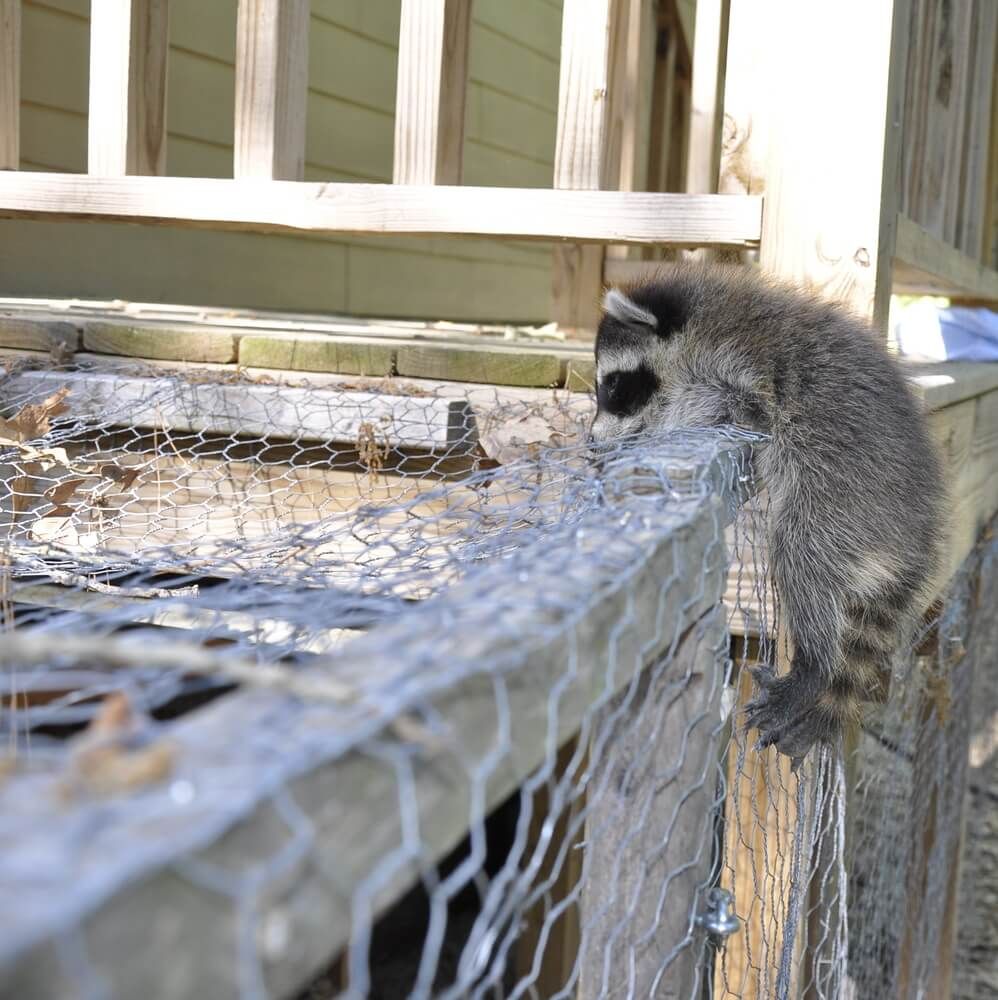
How to Protect Your Chickens From Raccoons
If you want to prevent raccoons from attacking your chickens and keep your chickens safe, you need to make your home and chicken coop less desirable for them. Here are a few tips to help.
1. Secure All Food Sources
Let raccoons know that the kitchen is closed. Make it known that they won’t find any food at your house! You should lock up your garbage can and recycling bin. Put the trash bin where raccoons cannot get into them. Do not forget that you should lock up your chicken feed, dog food, and cattle food. And clean your BBQ grill.
2. Collect Your Eggs
Hopefully, your chicken coop is locked tight, so raccoons can’t gain access. But we still advise collecting eggs regularly. Do not leave your eggs out overnight.
3. Have a Strong Fence
Make sure you use strong chain link fencing, hardware cloth, extra-strength chicken wire, or another barrier that can resist raccoon claws. Remember that raccoons are excellent climbers and can cut through a simple wire. The fence should reach several feet in the air and get buried underground to prevent raccoons from burrowing under it.
4. Use a Sturdy Lock!
Lock your chicken coop with a number lock or a strong padlock. Raccoons can cut through a simple latch lock.
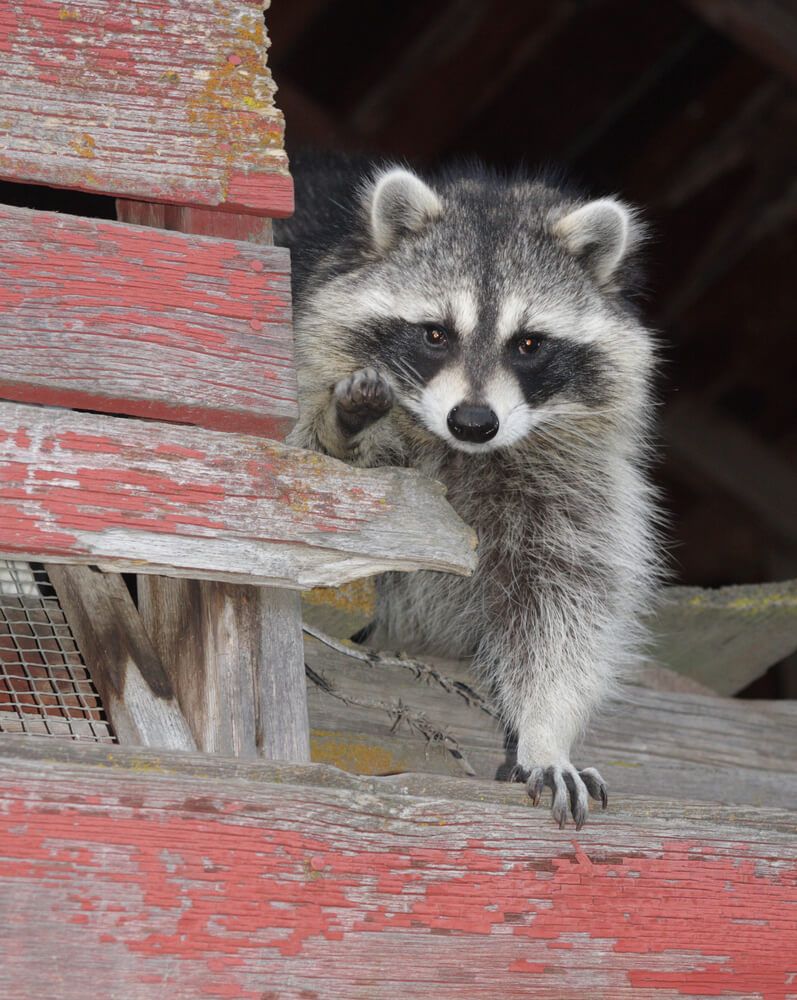
5. Consider Bright Lights and Loud Noises
Raccoons hate human company when they’re in the middle of a midnight caper! You may want to use a motion detector that makes loud noises and creates a bright light when it detects raccoons. Or, you could at least yell at them (from a safe distance, hopefully, your kitchen window.) That way, you can scare off raccoons when they come snooping around.
6. Get Professional Pest Control Help
If your raccoons aren’t leaving your hens, don’t give up. Ask for help! You may consider reaching out to animal control for help getting rid of them. They deal with this kind of thing all the time and can help deter the raccoons.
Do Racoons Eat Chickens? FAQs
Some of the most common questions our homesteading friends ask about raccoons and keeping their backyard chickens safe include the following.
Maybe. Raccoons might eat an entire baby chicken, but they are known to be wasteful. Raccoons tend to go after breast meat, and they might leave heads and entrails behind.
Never use mothballs or other artificial pesticides near your chickens! Sources indeed vary on the efficacy of deterring raccoons with unpleasant odors. There are certain odors that raccoons may not like. For example, we read that mothballs may deter raccoons from confined spaces.
Never use mothballs or other artificial pesticides near your chickens! Sources indeed vary on the efficacy of deterring raccoons with unpleasant odors. There are certain odors that raccoons may not like. For example, we read that mothballs may deter raccoons from confined spaces.
However, we’ve read from several reliable sources that mothballs aren’t safe for chickens. Securing your chicken coop so the raccoon can’t gain access is a much better, safer, and wiser way to protect your chickens.
Start by eliminating things that attract raccoons. Secure or eliminate excess food, water bowls, insecure trash bins, and food waste. Don’t ring the dinner bell for raccoons! You can also protect your chickens from raccoons with a sturdy padlock, reinforced fencing, or chicken wire.
Conclusion
Raising backyard chickens is a lot of work. The last thing you need is to stress about raccoons eating or killing your chickens.
We hope our chicken protection guide helped secure your flock against raccoons. And other poultry predators!
To summarize our experience, raccoons indeed eat chickens. We advise keeping your henhouse secure and locked tight at night.
And don’t forget to keep your yard free of food sources that lure raccoons into your yard in the first place. The raccoons come for your trash. Then they stay for your chickens!
If you follow those tips, your chickens will probably be much safer. And happier!
Thanks again for reading.
And have a great day!

